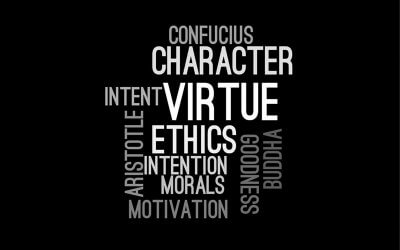Discover how understanding the limitations of averages and embracing probabilistic thinking can improve decision-making and risk management in business.

Discovering Your Niche: Why You Need to Be Famous for Something
In a meeting last week, one of my Vistage members discussed his expansion into a new business area and how to price his services. The way he described the new market was comprehensive. As usual in Vistage, this led to a great discussion challenging his assumptions, followed up with some excellent ideas. However, several of us, including myself, asked the critical question, “What precisely are you offering your clients.” I believe everyone needs to ask this question and drill down to the micro-level because, as a coach once told me, “You have to be famous for something!”
Why You Need to be Famous for Something
As an entrepreneur, focusing on a specific area of expertise is essential instead of accepting any work that comes your way. This focus allows you to clearly understand your products or services, which is crucial for generating referrals and building your brand. By defining and communicating your target audience, you set yourself apart from the competition and make it easier for potential clients to understand your value proposition.
What is the job to be done?
The concept of “The Job to be Done,” introduced by Clayton Christensen, suggests that people purchase services or products to fulfill specific needs. By identifying the core problem your clients want to solve, you can clarify your value proposition and better communicate your offerings. Understanding the “job” you’re hired for makes it easier for potential clients to grasp your expertise and ensures that you stand out in the marketplace.
My Definition
As a growth business coach, I work with CEOs and leadership teams of companies with revenues from $5MM to $50MM. This niche allows me to focus on helping these clients build a growth engine for dramatic profitable growth. By narrowing down my focus, I can clarify my message, making it easier for potential clients to understand my expertise and the value I bring to their businesses.
It feeds Jim Collins’ BHAG.
Understanding what you can be the best at helps frame your passion and gives your business direction. By identifying why your company exists, you can develop your BHAG (Big Hairy Audacious Goal), which is the foundation of your long-term strategy. Clear answers provide clarity and direction for your business, ensuring you stay on track and focused on your ultimate vision.
People know what you do.
Describing the job you do clearly and concisely enables people to understand why they should use your services. Specializing in a specific area makes it easier for potential clients to connect with you based on their needs. Providing a clear message about your services increases the likelihood of referrals and creates a strong foundation for your business.
You can find your tribe.
Specializing in a particular area helps you identify your target audience or “tribe.” Knowing your tribe allows you to understand their preferences, characteristics, and habits. This targeted approach enables you to create marketing efforts that resonate with your audience and generate better results, ultimately leading to increased success and growth for your business.
If you focus on a “job,” you can do it well.
Specializing in a specific area allows you to develop increased skills and recognition in that field. You can achieve better results and differentiate yourself from competitors by honing your expertise. Avoiding the commodity trap and staying focused on your niche ensures your business remains competitive and successful.
If done well, you sell “Value.”
By focusing on providing value to your clients, you can move beyond pricing based on time and materials. Instead, you can adopt a value-based pricing approach, which improves margins and allows you to maintain your leadership position in the market. This pricing strategy ensures your business remains competitive and maintains a strong market presence.
Discovering Your Niche
Determining your niche takes time and effort but offers substantial returns in the long run. Engaging a coach or working with your team to facilitate discussions can be beneficial in identifying your niche. Investing time and energy in finding your niche maximize your business’s potential and sets you on the path to success.
Copyright (c) 2021, Marc A. Borrelli
Recent Posts
The “Flaw of Averages” Causes Havoc for Businesses
What is Your Strategy, In a Sentence?
If you are banking on the vaccine returning us all to “normal” quite quickly, in the famous words of Dr. Akande, “Hope is not a strategy.” Your organization should be preparing a well-defined strategy for 2021 and beyond. Once you have this strategy, the ultimate question: can you clearly articulate it in one sentence? Distilling your strategy into a single sentence is a powerful tool, both for your legacy and your team effectiveness. Not sure where to start? I offer a plug-in formula to set up your strategy sentence.
Character Matters
“It’s easier to hold to your principles 100% of the time than it is to hold to them 98% of the time.” — Clayton Christiansen. I have often written about the importance of a company’s Core Values. That’s because no matter what words you may have chosen as values, your organization’s Core Values are on display in how leadership and employees actually behave. As I’ve said before, how you have acted in the last twelve months will define your career for the next decade. Your character, and your company’s character, matters.
New Year’s Resolutions, Once More Unto the Breach
The holidays have been even quieter than normal, which has given me plenty of time to reflect on my New Year’s resolutions. Looking at 2021, I decided to use a completely new approach to lay out my goals. The result of my new approach? A highly-detailed, accountable, actually achievable plan for the next year (I think). Wondering what this process looks like?
To Vaccinate or Not to Vaccinate, that is the Question
What do your employees, peers, and leadership team think of the COVID-19 vaccine? Will you require the vaccine, or will you let employees make individual decisions? As a leader, you need to steer the discussion about vaccines in your organization with your Core Values in mind. No matter what strategy your organization takes, the most important factor is going to be how you communicate your decision.
3 Ways You Could be Undermining Your Core Values
Can you answer “Why does your organization exist? What are your core values?” Great. Now, would your latest entry-level employee give a similar answer? How about someone who has been at your company for a year? Your core values give your organization a guiding mission. Many organizations pay this idea lip service, but their true commitment to their core values was tested this year. As we close out 2020, there’s no better time to examine how your organization is approaching your core values.
Are You Prepared for 2021 With Enough Cash?
Companies don’t go bankrupt because they lose money; rather, they run out of cash. Where are we, heading into 2021? First, you can expect your cash to get tighter as we weather the current economic slowdown. Then, with a vaccine on the horizon, you will need to be positioned for growth. If you don’t have the cash you need, have you looked at how you can generate the cash internally? More on how to improve your cash conversion cycle…
Tony Hsieh, a Corporate Culture Icon, RIP
In his work as Zappos CEO and elsewhere, Tony Hsieh believed, and proved, that culture is the most important thing in an organization. According to Hsieh, if you get the culture right, the rest will take of itself. How did Zappos do it? You can take a look at everything from the company’s interview questions, to “The Offer” to leave a position as a new hire. Hsieh believed that a company’s brand is just a reflection of the culture, and his legacy is felt across so many industries.
CEO, Try Thy Hiring System
How does your company hire? I’ve seen the good, the bad, and the surprisingly ugly hiring processes in my career. From the HR email mix-ups to the interviewer watching the World Series while I responded to his questions, I’ve learned that you can tell a lot about an organization simply by examining the hiring experience. Are you chasing away the kind of people you need at your company?
What is Leadership?
What is it, exactly, that great leaders do? There are plenty of overused adages about “leadership” in business. It’s worth examining the tropes around leadership, plus the traits of the leaders who actually leave a mark. Great leaders are forged through adversity, and they leave a legacy. What does that look like in your organization?










